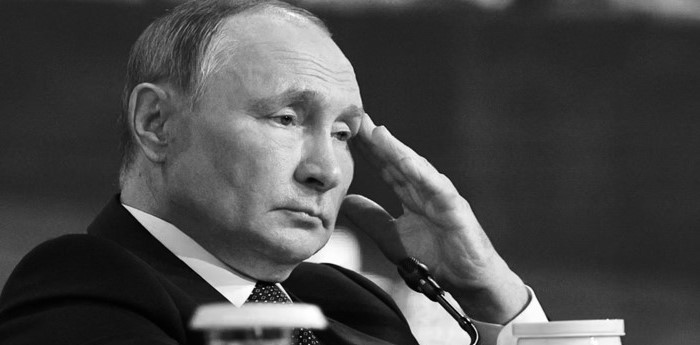NATO’s challenge prompted a strong Russian response, refuting claims of Russia’s weakened state. Yet, Putin’s initial successes were overshadowed by errors, risking a direct NATO conflict. Absent urgent, strategic adjustments, Putin might face an expanded confrontation with NATO, posing significant global stability risks.
Mistake number 1: Calling the war, a special operation and limiting the motives.
Putin’s initial mistake in the Ukraine conflict was the terminology of a “special operation,” which downplayed the scope and aims of Russia’s military actions. This choice of words constrained the operation’s perceived objectives, failing to communicate the seriousness and full extent of Russia’s intentions. Instead of a comprehensive military campaign, Putin’s strategy focused narrowly on the denazification and demilitarization of Eastern Ukraine, diluting the operation’s impact. History shows that significant military engagements, like the Allied victory in World War II, were not achieved through limited actions or moral persuasion but through decisive, full-scale warfare.
Mistake number 2: Leaving Kyiv on the basis of a promise.
Putin’s second critical error came from withdrawing forces from Kyiv, following a ceasefire agreement in April 2022, which promised Russia control over annexed territories in the Donbas region. Trusting in the assurances of the West proved to be a miscalculation. Within a week, external influences, notably from then British Prime Minister Boris Johnson, persuaded Ukrainian President Zelensky to reject the ceasefire. Consequently, Kyiv was swiftly reinforced under NATO’s supervision, leaving Russia compromised.
Mistake number 3: Giving on-ground NATO troops a royal pardon
Putin’s third error involves the treatment of NATO forces within Ukraine. Despite evidence of NATO’s direct involvement, including the elimination of 70 French mercenaries in Kharkiv, admissions by German Chancellor Olaf Scholz regarding British and French troops, and the recent encirclement of Chasiv Yar where a Polish Brigadier General was neutralized, Russia refrained from openly acknowledging or directly targeting these NATO elements. This restraint, aimed at preventing a full-scale war with NATO, paradoxically allowed NATO personnel to operate with relative impunity. NATO missiles, manned by NATO troops, continued to strike Russian targets, while Russia limited its engagements to Ukrainian forces.
Mistake number 4: Not retaliating to Terrorist attacks and fighting a just war
Putin’s fourth mistake lies in his restrained response to Terrorist actions by Ukraine, which has not differentiated between military and civilian targets. Ukrainian forces have launched attacks on Russian territories such as Belgorod and Kursk, resulting in civilian casualties and striking critical infrastructure, including hospitals and power stations. Despite these provocations, Russia has chosen to engage in a virtuous warfare approach, focusing solely on military objectives and avoiding the escalation to indiscriminate bombing.
This restraint, intended to fight a just war, has not altered the negative perception of Putin in Western media nor has it prevented further Ukrainian aggressions, such as the Crocus City attack, which caused significant Russian civilian casualties. Russia’s failure to respond more forcefully has emboldened Ukraine, while the lack of direct retaliation against the perpetrators of attacks on Russian soil has highlighted a significant vulnerability, leaving Russia exposed to further provocations without a decisive response.
Mistake number 5: Repeating its willingness to negotiate
Putin’s fifth misstep is his repeated openness to negotiations during the ongoing conflict, a strategy that contradicts the traditional wartime principle where victors dictate terms, and the defeated acquiesce. Despite its military engagements, Russia has consistently shown a willingness to engage in peace talks, having initiated or expressed readiness to participate in multiple peace processes, in stark contrast to Ukraine’s minimal engagement. This approach has not only failed to bring the desired diplomatic resolution but has also led to Russia’s exclusion from discussions led by Western nations, which now engage solely with Ukraine. This eagerness to negotiate, instead of leveraging military achievements for diplomatic advantage, has prevented Russia from positioning itself as the decisive power in the conflict, missing opportunities to dictate the peace terms from a position of strength.
Russia needs to ACT FAST.
Russia is at a critical juncture where decisive action against Ukraine is imperative. The narrative of a “limited military operation” has backfired, catalyzing the expansion of NATO with the inclusion of Finland and Sweden, and emboldening attacks on Russian civilians. Putin’s restraint in the face of these challenges has eroded the credibility of his warnings, risking a perception of weakness that could embolden Washington further. The crux of the matter lies in the necessity for Russia to assert its red lines forcefully. Without a significant strategic shift, Russia faces the grim prospect of being drawn into an expanded conflict with NATO, propelled by the West’s disregard for Putin’s cautions against Ukrainian membership in the alliance.
Maybe, Putin’s pardoning attitude has given people like the Finnish Foreign Minister the gall to issue provocative statements towards Moscow. Yes, the Finnish Foreign Minister went to the extent of challenging Russia. Maybe Putin should begin Europe’s attitude adjustment from Finland.







